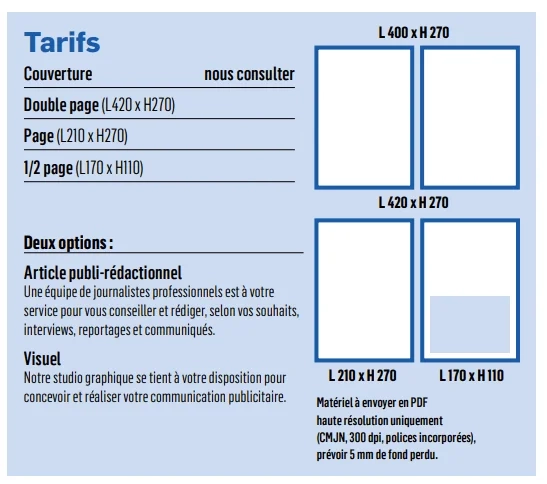
Interview with Hugues Mbadinga Madiya, Minister of Investment Promotion, Public-Private Partnerships, and Minister responsible for Improving the Business Environment, since March 2022. A graduate of Sciences Po Paris, this specialist in African policies and development was previously Minister of Trade, SMEs, and Industry.
Recent macroeconomic developments bode well for your country. In which sectors do you want to boost FDI?
In 2021, Head of State HE Ali BONGO ONDIMBA launched the Transformation Acceleration Plan (PAT), which sets the course and objectives for Gabon's post-COVID economic recovery. In this plan, key sectors were identified based on their impact on the economic and social development of our country.
The agri-food, infrastructure, energy, wood processing, mining and manufacturing sectors are the main sectors of activity that focus our investment promotion efforts and through which we aim to boost FDI.
The country is particularly active in a number of priority sectors identified in the PAT, notably:
– By substituting imports in the agricultural sector by planning to invest approximately 500 million euros in agricultural development by 2023. Gabon's ambition is to achieve food self-sufficiency, by developing more than 560 thousand hectares of land for intensive exploitation of plant and animal sectors within the ZAPs. The agricultural sector will also support the development of agro-industrial sectors of palm oil, rubber, sugar and processed local food products (cassava flour, fruit juice, charcuterie, etc.). 250 thousand hectares of agricultural land are already developed and ready to be handed over to potential investors. Indeed, the State will make available to investors plots of developed arable land (between 8,000 and 10,000 hectares) to develop both food crops and those intended for export.
– In the fisheries sector, the new strategic direction adopted by Gabon also aims to double production in the fisheries sector and triple the revenues generated by it. Boosting the sector involves landing 100,130 tonnes of fishing catches made in Gabonese territorial waters on national soil and processing a significant proportion of the catches locally into consumer products for the national and international markets. To achieve this, Gabon has strengthened the institutional and legal framework of the sector and will invest in the infrastructure necessary for its development. A maritime research center is planned to be built to accelerate the sector's development.
-In the Mining sector, Gabon has a subsoil rich in mineral resources with more than 900 mining indices, the most important of which are: manganese (reserves of approximately 250 million tons), iron (reserves of more than 1 billion tons), gold and rare earths. Thus, Gabon has engaged in a series of investments that allowed the construction of a hydroelectric dam intended to supply energy to two manganese processing plants that were established in 2014 and which currently process 10% of Gabon's annual production. Also, the country has strengthened the governance of its mining sector, notably by revising the mining code, making the business environment more attractive to investors. Gabon intends to continue this dynamic in order to develop this sector through the diversification of mining and local processing.
– In the digital sector, Gabon has one of the highest penetration rates of mobile money services in Africa, alongside countries like Kenya. The use of digital networks, particularly smartphones, has reached a level that now makes it a mass medium for online services. To strengthen the national digital ecosystem, Gabon has identified three projects with a high impact on the Gabonese economy for which the country is actively seeking partners, including the construction of a data center.
-In the Oil & Gas sector, several initiatives have also been launched to make Port-Gentil a true petrochemical cluster by 2025 that is relatively unaffected by oil price trends. Gabon thus aims to develop both offshore oil exploitation and a strong national petrochemical sector thanks to natural gas production. This prospect also provides an opportunity for investors to come and settle in Gabon. Initial productive investments are in the advanced stages of preparation, including a compound nitrogen fertilizer production unit and a new oil refinery.
– In the Water and Energy sector, Gabon aims to increase its current energy production capacity to 1,200 MW by 2024 to meet projected demand of around 1,039 MW, with a focus on hydroelectric and solar energy, the potential of which for Gabon is estimated at between 5,000 and 6,000 MW. Thus, with a view to covering all of Gabon's needs through a competitive, sustainable and job-creating offer, three new hydroelectric dams will be built in partnership with private operators: the Ngoulmendjim dam in the Estuary (73 MW) and the Chutes de l'Impératrice (80 MW) and Dibwangui (30 MW) dams in the Ngounié. Thus, 80% of the energy consumed in Gabon will come from a renewable and less expensive source. An integrated national network will supply water to various areas of the country, following the route of major infrastructure corridors. Gabon also aims to increase its water production by building the Ntoum 7 water production plant and harnessing the waters of the Kango River to ensure universal access to water for all. An additional 140,000 cubic meters of drinking water will then be produced daily to supply Libreville.
How do you plan to improve access to private sector financing?
The problem of access to financing is a concern for SMEs and VSMs as well as for the start-up of certain projects led by the private sector.
For SMEs and microenterprises, the government has implemented financial and guarantee instruments developed by the Gabonese Strategic Investment Fund (FGIS). These are the Okoumé Fund and the Guarantee Fund. These instruments are currently being operationalized.
It is also worth mentioning the decisive role of the National Agency for Promotion and Investment, ANPI-Gabon, which supports SMEs to enable their access to financing. The Agency has established partnerships with local banks and microfinance companies such as COFINA, which has provided these promoters with a substantial direct financing line of 500 million CFA francs. We are working to replicate this experience with other credit institutions.
We also work with regional and local financial partners to encourage them to diversify their portfolios. Thus, ANPI-Gabon, FGIS, and the Caisse de Dépôts et de Consignations (CDC) are the government's armed forces supporting projects led by the private sector so that they are eligible for financing through the specialized windows of the African Development Bank, the Development Bank of Central African States, with, of course, the support of local banks. Guarantee funds such as the African Solidarity Fund, which is a multilateral fund established by African countries based in Niamey, Niger.
The Nkok Special Economic Zone is now a hub for development and industrialization in Gabon. What added value will the new dry port bring?
The new dry port of the Nkok SEZ, which will cover an area of 15 hectares with an estimated transport capacity of 2,500 to 3,000 containers per month, is a strategic tool for accelerating the performance of this multi-sector industrial park. It represents added value across the entire logistics chain. It will aim to decongest the Port of Owendo, streamline traffic in the city, reduce export times for economic operators' production, and facilitate the delivery of equipment and other inputs for operators in the Nkok SEZ.
We are convinced that, in addition to the tax and customs advantages, the administrative facilities, the services and amenities offered, and the development of infrastructure in the area, this new dry port is an additional element of attractiveness for investors in the Nkok SEZ, in accordance with the vision of the President of the Republic, Head of State, HE Ali Bongo Ondimba.
What would you say to a future investor to convince them to choose Gabon?
Gabon enjoys robust governance and a resilient, growing economy, as we have seen since the health crisis. The investor-friendly business climate, marked by numerous government incentives, and access to the CEMAC and ECCAS regional markets of over 250 million consumers are key decision-making factors that should encourage developers to invest in Gabon.
The analysis of the Gabonese investment sector allows us to identify the following major realities:
– the positioning of Gabon as a world-class business platform;
– increasing support for investment through the development of the use of PPPs and innovative financing;
– the development of a modern administration providing services including state teleservices in an efficient and innovative manner (Aftercare).



















 A Seat That Transforms into a Bed
A Seat That Transforms into a Bed  In the world of air travel, economy class is often considered the most affordable option. However, at Air Afrika, we believe that affordability shouldn't mean compromising on quality of service. Our class
In the world of air travel, economy class is often considered the most affordable option. However, at Air Afrika, we believe that affordability shouldn't mean compromising on quality of service. Our class






